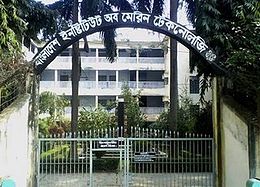A Bachelor of Education is an undergraduate academic degree which prepares students for work as a teacher in schools. A Bachelor of Education program typically lasts three to four years and combines both coursework and practical experience in educational settings. The curriculum is designed to provide foundational knowledge in pedagogy, educational psychology, teaching methodologies, and subject-specific training. Graduates of this program are equipped with the skills necessary to foster a supportive and effective learning environment for their students.
The Higher School Certificate (HSC) is the credential awarded to secondary school students who successfully complete senior high school level studies in New South Wales and some ACT schools in Australia, as well as some international schools in Singapore, Malaysia, Indonesia, China, and Papua New Guinea. It was first introduced in 1967, with the last major revision coming into effect in 2019. It is currently developed and managed by the NSW Education Standards Authority (NESA).
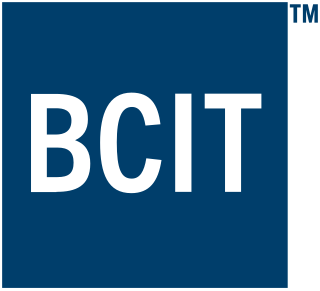
The British Columbia Institute of Technology, is a public polytechnic institute in Burnaby, British Columbia, Canada. The technical institute has five campuses located in the Metro Vancouver region, with its main campus in Burnaby, British Columbia, Canada. There is also the Aerospace Technology Campus in Richmond, the Marine Campus in the City of North Vancouver, Downtown campus in Vancouver, and Annacis Island Campus in Delta. It is provincially chartered through legislation in the College and Institute Act. The school operates as a vocational and technical school, offering apprenticeships for the skilled trades and diplomas and degrees in vocational education for skilled technicians and workers in professions such as engineering, accountancy, business administration, broadcast/media communications, digital arts, nursing, computing, medicine, architecture, and law.

The Bangladesh University of Engineering and Technology commonly known by its acronym BUET, is a public technological research university in Dhaka, the capital city of Bangladesh. Founded in 1876 as the Dacca Survey School and gained university status in 1962, it is the oldest institution for the study of engineering, architecture, and urban planning in the country.
Higher education in Mauritius includes colleges, universities and other technical institutions. Public university education has been free to students since 2019. The sector is managed by the Higher Education Commission (HEC) which has the responsibility for allocating public funds, and fostering, planning and coordinating the development of post-secondary education and training. Formerly the Tertiary Education Commission, in 2020 it was reformed into the HEC and a separate Quality Assurance Authority (QAA) for auditing of qualifications.
A postgraduate diploma is a postgraduate qualification awarded after a university degree, which supplements the original degree and awards them with a graduate diploma. Countries that award postgraduate diplomas include but are not limited to Bangladesh, Barbados, Belgium, Brazil, Canada, Chile, Colombia, Germany, Hong Kong, Jamaica, Spain, Kenya, South Africa, Sudan, India, Israel, Ireland, the Netherlands, New Zealand, Nigeria, Republic of Panama the Philippines, Portugal, Russia, Pakistan, Poland, Saudi Arabia, Singapore, Sweden, the United Kingdom, Sri Lanka, Trinidad and Tobago and Zimbabwe. Level of education and recognition differ per issuing country.
An institute of technology is an institution of tertiary education that specializes in engineering, technology, applied science, and natural sciences.
TAFE NSW is an Australian vocational education and training provider. Annually, the network trains over 500,000 students in campus, workplace, online, or distance education methods of education. It was established as an independent statutory body under the TAFE Commission Act 1990. The Minister for Regional Development, Skills and Small Business is responsible for TAFE NSW.
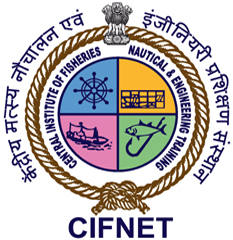
The Central Institute of Fisheries Nautical and Engineering Training (or CIFNET) formerly known as the Central Institute of Fisheries Operatives, is a marine studies centre located at Kochi, India. Maintained by the Department of Fisheries and Animal Husbandry and Dairying of the Government of India, the institute was set up to aid research and development in the field.

The Indian Maritime University - Kolkata Campus (formerly known as the Marine Engineering and Research Institute (MERI) and the Directorate of Marine Engineering Training (DMET)) is a post-secondary institution in India specialising in marine engineering.

Southeast University is a private university in Tejgaon, Dhaka, Bangladesh. The university was established under the Private University Act, 1992 approved by the Government of the People's Republic of Bangladesh. SEU ranked 10th among Top Private universities in Dhaka Tribune's Private University Ranking 2019.

The Turkish Naval Academy is a four-year co-educational military academy and part of the National Defence University. It is located in the district of Tuzla in Istanbul. Its mission is to develop cadets mentally and physically for service as commissioned officers in the Turkish Navy. It must not be confused with Naval War Institute.
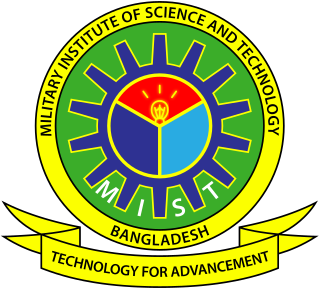
Military Institute of Science and Technology (MIST) is a public engineering university in Bangladesh, located at Mirpur Cantonment, Dhaka. MIST is a government engineering and technological research institution under the Ministry of Defence. Government of the People’s Republic of Bangladesh established MIST in 1998 for providing B.Sc., M.Sc., M.Phil. and PhD degrees in engineering. MIST is a PhD granting Public Research University in Bangladesh specialized in Engineering.

The Diploma in Engineering, Diploma in Technology, Diploma in Technical Education is a program focused on practical and skills-oriented training in India. It is a technical course that only covers the essentials when ranked with an undergraduate engineering degree. It aims to provide students with industry or job related basic engineering knowledge, scientific skills, computing and analysis, mathematical techniques, a sound knowledge of English to communicate in the field and the ability to apply problem-solving techniques.
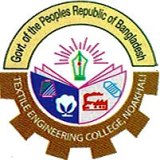
The Textile Engineering College, Noakhali is a textile engineering institute offers B.Sc. in Textile Engineering degree. It situated in Noakhali, Bangladesh. It is affiliated with Bangladesh University of Textiles. Short name TECN.

The Bangladesh Technical Education Board is a state regulatory board responsible for monitoring and developing technical and vocational education in the secondary level (SSC), 2-year higher secondary level (HSC/Vocational), 4-year Diploma in Agriculture, 4-year Diploma in Engineering degree and 4-year Diploma in Medical Technology degree throughout the People's Republic of Bangladesh. The board sets the curriculum, develops learning materials, grants affiliation to technical and vocational institutions, governs admissions, conducts examination, and awards diploma certifications.

Chandpur Polytechnic Institute or CPI is a government polytechnic institute in Chandpur, Bangladesh. The institute is located at the city area Kachua, 50 km (31 mi) from the Chandpur City.
Post-secondary qualifications are qualifications typically studied for after successful completion of secondary school. In Mauritius, this is usually after successful completion of the Higher School Certificate or its equivalent, although select qualifications may permit early school leaving or require additional study. A variety of different post-secondary qualifications are offered in Mauritius.

Rangpur Polytechnic Institute is a technical educational institution in Rangpur, Bangladesh. It was established in 1882. It provides four year Diploma in Engineering Degree. Student who passed secondary school can enroll for studying Diploma in Engineering. After successfully completing four year Diploma in Engineering Degree student can apply for jobs where they will work as a Sub-Assistant Engineer. Rangpur Polytechnic Institute is one of the most popular and largest polytechnic institute in Bangladesh.
Shyamoli Ideal Polytechnic Institute (SIPI) is a private polytechnic institute in Bangladesh for providing 4 years Diploma in Engineering under BTEB. The institute has been established in 1979. It has four campuses located at Dhaka, Chittagong, Rangpur, Lakshmipur.
